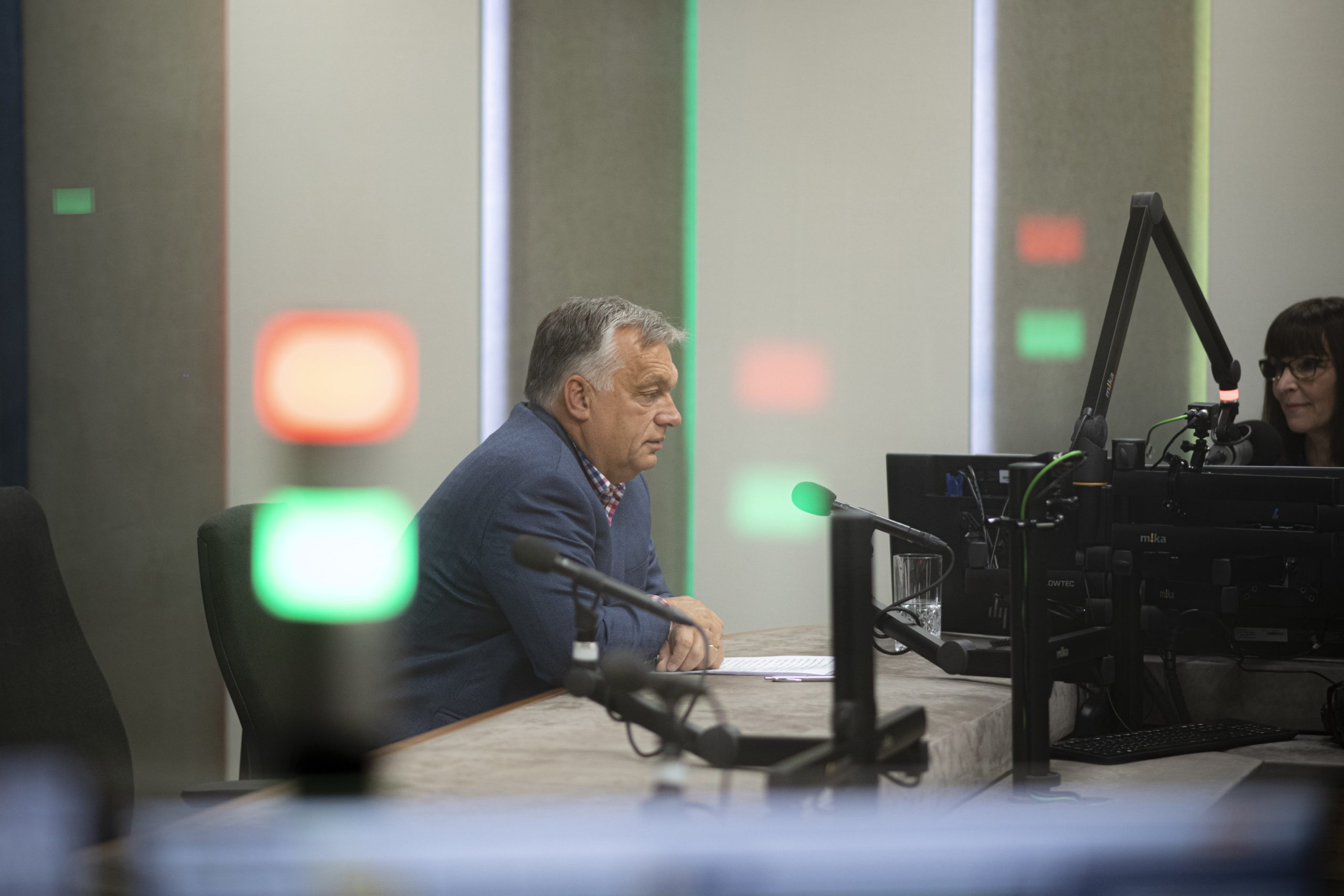
PM Orban: Peace is the best way to fight war inflation, so we should finance peace, not war
There is war inflation and a war-induced economic crisis is also looming, so we need peace, because if the war is over there will be no inflation, Hungary's prime minister told public media.
Chances are high that 2023 will continue to be a year of uncertainty and anxiety, because the war in Ukraine is likely to drag on, Hungarian PM Viktor Orban told Hungary’s public radio, adding that he believes Hungary will be able to stay out of this conflict. However, he noted, war-related inflation will also affect Hungary.
The prices are partly driven up by the war, while the sanctions imposed are causing additional price hikes. This is why the government decided to launch two national defence programmes,
Mr Orban said, explaining that one element of this is to defend the achievements of the Fidesz governments so far, including the protection of the value of pensions, the protection of families, and the protection of utility bill cuts. In light of this, he underlined that
the government’s utility cuts scheme will continue to apply to the approximately one hundred thousand small businesses that also need lower energy prices,
adding that the ministers in charge of economic affairs believe that the price freezes would reduce inflation by 5-6 per cent. PM Orban also highlighted that
the best way to fight war inflation is peace, so we should finance peace, not war. The Hungarian government is almost the only one in Europe which believes that we must finance peace, not the war,
PM Orban said, noting that warmongers must be reined back. There are business circles that would prefer financing the war, such as George Soros, Mr Orban pointed out. Hungary’s prime minister also commented on Brussels’ intention to launch infringement procedures against Hungary over the fuel price cap. Mr Orban said desperate times call for desperate measures, adding that Brussels must understand this.
During the interview PM Orban also mentioned that Hungary had managed to get an exemption from the oil embargo but, according to recent press reports, the EU would impose a punitive tariff on Russian oil. This is fake news, Mr Orban opined, explaining that in his opinion this is not feasible, as a decision once taken would not be reversed. Now the task is to replace Russian oil with something else. This will not be easy, he said, recalling that
the Hungarian left would have cancelled the price caps and adopted the oil embargo, which would have boosted the inflation to well over its current rate.
Discussing the possibility of an EU gas embargo during the interview, PM Orban said the idea is being introduced in exactly the same way as the oil embargo was.
First, they just float the idea, with Germany rejecting it from the outset, and then they change their mind a few weeks later. The problem here is not only that Hungary would have no alternative; a gas embargo would ruin the whole of Europe.
I trust that common sense will prevail, Mr Orban said.
The interview placed special emphasis on Hungary’s recently announced extra profit tax. PM Orban said he believed that if it was so easy to pass it on to people, companies would not be protesting it.
We’ll be paying attention not to let the affected companies pass this extra tax on to the people,
he stated, and he also expressed his gratitude to the banks and companies that would be paying this windfall tax into the fund.
Regarding the state-regulated price caps, PM Orban said they must be set with caution, always evaluating the consequences. The government has several ministers who deal with economic issues and their task is to make suggestions on whether to extend the price caps, he added, stressing that he would like to keep the price caps in place. Responding to a proposal by the CEO of Hungarian oil and gas company MOL, who suggested that the fuel price cap should be phased out starting from 1 July, Mr Orban underlined that
everything depends on the war.
Viktor Orban also responded to European Commission Vice President Frans Timmermans’ proposal to impose a carbon tax in the EU. The Hungarian premier said it might not be the best time to come up with such a proposal.
It may be that Europe is no longer teetering on the brink of an economic crisis, but is actually in it. Calling for extra taxes in such a situation is insensitive and detached from reality. These kinds of people should not make decisions,
PM Orban said, adding that it was a great achievement from the European Parliament to finally put its feet down and take the side of the people by rejecting the proposal. Mr Orban said his position on the subject was unchanged: he still believes that these burdens – which Brussels’ proposal would pass on to be borne by ordinary citizens – should be paid by large polluters instead.
Tags:

